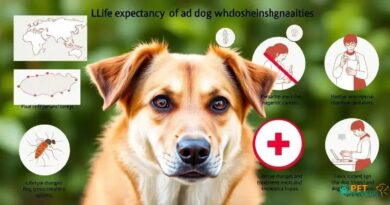What is expert dog health advice
Understanding Expert Dog Health Advice
Expert dog health advice encompasses a wide range of information and recommendations provided by veterinarians and canine health specialists. This advice is crucial for dog owners who want to ensure their pets lead healthy, happy lives. It includes guidance on nutrition, exercise, preventive care, and recognizing signs of illness. By following expert advice, dog owners can make informed decisions that positively impact their pets’ well-being.
The Importance of Nutrition in Dog Health
One of the cornerstones of expert dog health advice is proper nutrition. A balanced diet tailored to a dog’s specific breed, age, and health condition is essential. Experts recommend high-quality dog food that meets the nutritional standards set by veterinary associations. Additionally, understanding the role of supplements and treats can help owners provide a well-rounded diet that supports their dog’s overall health.
Regular Veterinary Check-ups
Regular veterinary check-ups are a fundamental aspect of expert dog health advice. These visits allow for early detection of potential health issues and ensure that vaccinations are up to date. Veterinarians can also provide personalized advice on diet, exercise, and preventive care based on the dog’s individual needs. Establishing a routine for veterinary visits is essential for maintaining a dog’s health.
Exercise Recommendations for Dogs
Exercise is another critical component of expert dog health advice. Different breeds have varying exercise needs, and understanding these requirements is vital for keeping a dog physically fit. Experts suggest daily walks, playtime, and mental stimulation to prevent obesity and behavioral issues. Tailoring an exercise regimen to a dog’s energy level and age can enhance their quality of life.
Preventive Care and Vaccinations
Preventive care is a key focus of expert dog health advice. This includes vaccinations, parasite control, and dental care. Keeping up with vaccinations protects dogs from serious diseases, while regular dental check-ups help prevent oral health issues. Expert advice often emphasizes the importance of preventive measures to avoid costly and painful health problems down the line.
Recognizing Signs of Illness
Being able to recognize signs of illness is crucial for dog owners. Expert dog health advice includes education on common symptoms that may indicate health issues, such as changes in appetite, lethargy, or unusual behavior. Understanding these signs allows owners to seek veterinary care promptly, which can be critical in addressing health concerns before they escalate.
Behavioral Health and Training
Expert dog health advice also extends to behavioral health and training. A well-trained dog is not only a joy to have but also less likely to develop behavioral problems that can affect their health. Experts recommend positive reinforcement training methods and socialization to promote good behavior and mental well-being. Addressing behavioral issues early on can lead to a happier, healthier dog.
Grooming and Hygiene Practices
Grooming is an essential part of expert dog health advice. Regular grooming helps maintain a dog’s coat, skin, and overall hygiene. This includes bathing, brushing, and nail trimming. Experts often highlight the importance of grooming in preventing skin infections and other health issues. Establishing a grooming routine can significantly contribute to a dog’s health and comfort.
Understanding Breed-Specific Health Issues
Each dog breed has its own set of health concerns, and expert dog health advice often includes information on breed-specific issues. For instance, certain breeds are prone to hip dysplasia, while others may have respiratory problems. Being aware of these potential health risks allows owners to take proactive measures, such as regular screenings and tailored care, to mitigate these issues.
Building a Relationship with Your Veterinarian
Finally, building a strong relationship with a veterinarian is an essential aspect of expert dog health advice. Open communication about a dog’s health, behavior, and lifestyle can lead to better care and tailored recommendations. Owners are encouraged to ask questions and seek clarification on any health concerns, ensuring they are well-informed advocates for their pets’ health.



